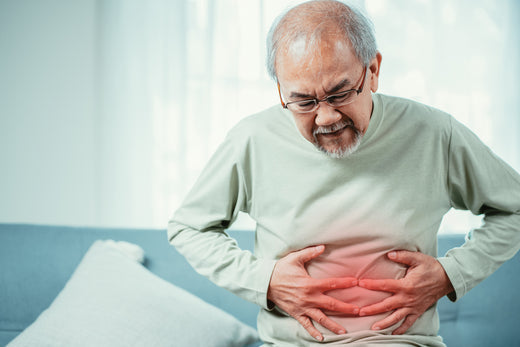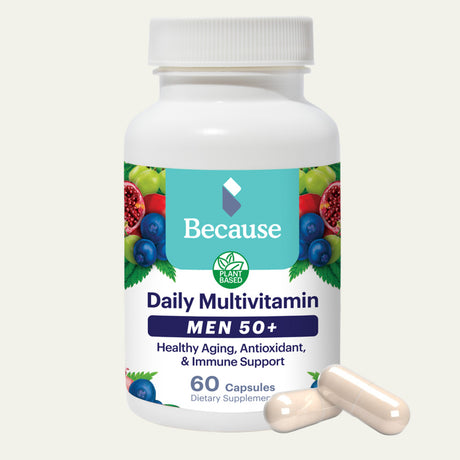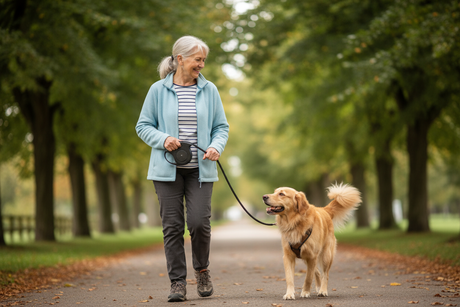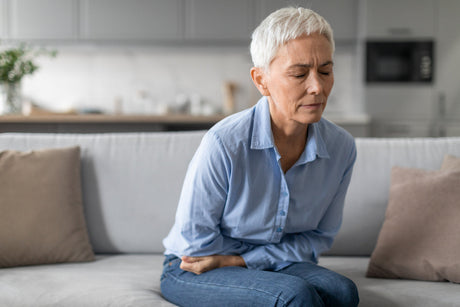Gallbladder disease is a relatively common condition, affecting about 20.5 million people in the U.S. Each year, more than 600,000 cholecystectomies for gallbladder removal procedures are used to treat the condition. While surgery is an effective treatment for gallbladder disease, it can cause side effects — including bowel incontinence. In this piece, we’ll explore incontinence, why it occurs after gallbladder removal, and what you can do about this potentially embarrassing problem.
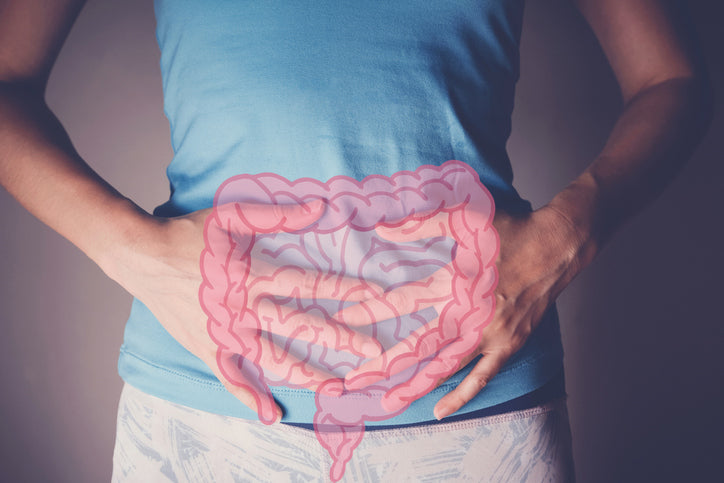
What Is Bowel Incontinence and Why Does It Happen?
Bowel or fecal incontinence is a loss of control over bowel movements. It can involve minor, occasional accidental bowel leakage or a full loss of bowel control, resulting in the complete emptying of the bowels. Generally, causes of bowel incontinence include:
- Muscle damage: Weakening of the pelvic floor muscles that support the bowels or damage to these muscles or those in the rectum can make it difficult to hold in stool. Weak pelvic floor muscles can also cause urinary incontinence.
- Nerve damage: Childbirth, chronic constipation, stroke, diabetes, multiple sclerosis, and other conditions can damage the nerves that control the anal sphincter (the muscle that closes to prevent stool from passing through until you’re ready to go to the bathroom).
- Changes in bowel consistency: Chronic constipation can cause hard stool to become lodged or impacted in the rectum. When this occurs, watery stool behind it may leak out around the impaction, and diarrhea can be more challenging to hold in than solid stool.
- Damage to the rectum: If the rectum becomes inflamed or stiff due to inflammatory bowel disease, radiation therapy for cancer, or other causes, it may not be able to hold as much solid waste — leading to leakage.
- Physical disability: People with mobility issues may have difficulty reaching the bathroom when defecating.
- Rectal prolapse occurs when the rectum descends into the anus, causing stretches that damage nerves and allow feces to leak out of the anal sphincter.
Is Bowel Incontinence Common After Gallbladder Removal?
One study determined that roughly 35% of people who undergo gallbladder removal surgery experience changes in bowel habits afterward. In many cases, people who develop bowel incontinence after gallbladder removal have problems with anal leakage. Suffering from a total loss of bowel control is rare, but the severity of symptoms varies.
Understanding the Gallbladder
The gallbladder is a small organ shaped like a pear under the liver. The liver produces bile that travels through the common bile duct into the gallbladder. When you eat, the gallbladder releases bile, which travels through a network of tubes called the biliary tract and enters the small intestine.
Common Reasons for Gallbladder Removal Surgery
Doctors may recommend gallbladder removal surgery for patients with the following conditions:
- Gallstones: Gallstones are hard deposits of cholesterol or bilirubin that form in the bile duct of the gallbladder. Individuals who experience frequent gallstones may be candidates for gallbladder removal surgery. Risk factors for gallstones include being female, over the age of 40, and being overweight or obese. People who eat a high-fat or high-cholesterol diet or have diabetes or liver disease are also at risk for gallstones.
- Cholecystitis: Cholecystitis is inflammation of the gallbladder — often caused by gallstones. A healthcare provider may recommend gallbladder removal if it occurs frequently or becomes chronic.
- Pancreatitis: If the nearby pancreas becomes inflamed due to gallstones, removal of the gallbladder may be necessary.
- Gallbladder disease: Doctors refer to chronic gallstones and cholecystitis as gallbladder disease, and removing it is one of the main treatments.
- Gallbladder cancer: Although rarer than many other types of cancer, abnormal cancerous cells can develop in the gallbladder, and removal of the organ is usually part of the treatment.
The Impacts of Gallbladder Removal on the Body
You can live without your gallbladder, but the absence of the organ causes changes in your digestion. Bile acids go directly from the liver to the small intestine without your gallbladder. As a result, more bile enters the intestines at one time. This effect can lead to a variety of symptoms, including:
- Nausea
- Chronic diarrhea
- Yellowing of the skin and whites of the eyes
- Abdominal pain
- Gas or flatulence
- Nausea
- Vomiting
- Indigestion and diarrhea when consuming fatty foods
The impacts of gallbladder removal on the body can be a minor inconvenience or severe enough to negatively impact the overall quality of life.
In some cases, removing the gallbladder also increases blood pressure. With more cholesterol-rich bile in the body, there is a greater risk for the build-up of fatty deposits in the blood vessels. In turn, this can make it more difficult for blood to circulate through the body, increasing the pressure of its flow. If you’ve undergone gallbladder surgery, your primary care physician may monitor you closely for high blood pressure.
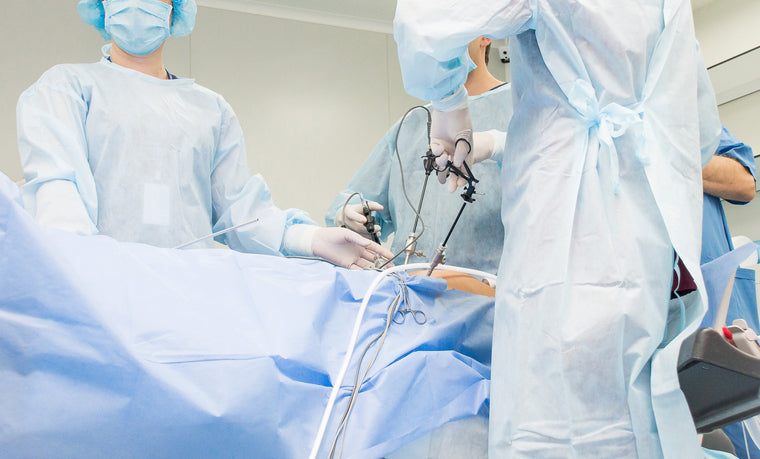
Why Gallbladder Surgery Can Cause Fecal Incontinence + What To Expect if You’re Affected
The increased amount of bile in the small intestine (due to the removal of the organ that stores bile) can lead to long-term diarrhea — usually the cause of bowel incontinence after gallbladder surgery. The anal sphincter muscle holds in solid waste, but watery or liquid stool can leak through the anus. As a result, you may feel the sudden urge to go to the bathroom or be unable to hold it until you can reach the toilet.
You may find it hard to complete daily tasks if you experience frequent leakage due to anal incontinence. You may worry about having an accident and choose to stay home more to avoid problems. Although fecal incontinence after gallbladder surgery is a medical condition, you may feel embarrassed about the issue, which can negatively impact your self-esteem. The good news is that you can usually improve symptoms through lifestyle changes and medical interventions.
Managing Bowel Incontinence After Gallbladder Removal
Managing bowel incontinence related to gallbladder surgery with the right strategy is possible. The following tips can help you live more normally despite fecal incontinence.
Make Dietary Changes
You may be more likely to experience an involuntary passage of stool when you consume certain foods, such as:
- Dairy products (like whole milk and cheese)
- Fatty foods (like bacon and potato chips)
- Fried foods (like French fries and deep-fried fish)
- Acidic foods (like vinegar and tomato sauce)
- Alcohol
Eating a low-fat diet and avoiding other trigger foods may help to reduce diarrhea. Consider keeping a food journal to record what you eat each day and what symptoms you experience. Then use this information to look for patterns and identify specific foods that cause you difficulty.
Try Supplements
Promoting a healthy balance of good and bad bacteria in your large intestine and other organs may help support digestive health after gallbladder removal. Probiotic supplements contain live strains of beneficial bacteria that aid digestion while keeping harmful bacteria that contribute to diarrhea and other medical problems in check.
In some cases, Doctors also recommend fiber supplements since increasing fiber intake can help promote firmer, more solid stools to reduce diarrhea.
Talk to Your Doctor About Medications
In some cases, medications may address bowel incontinence. These may include:
- Bile acid sequestrants: These drugs lower bile levels, including cholestyramine and colesevelam.
- IBS agents: These drugs slow down food movement through the small and large intestines, including alosetron, granisetron, and palonosetron.
- Calcium-channel blockers: These drugs treat high blood pressure and include amlodipine, diltiazem, felodipine, and nifedipine. Your doctor may recommend one of these drugs for hypertension after gallbladder removal surgery. They also cause constipation as a side effect, so they might be able to ease diarrhea and fecal incontinence.
Perform Pelvic Floor Exercises
Strengthening the muscles that support the large intestine may make it easier for you to hold in stool when you experience the sudden urge to go. A physical therapist can teach pelvic floor exercises to perform independently at home. You can also check out our article on pelvic floor strengtheners to learn some moves to try.
Modify Your Toileting Habits
Creating a regular toileting routine is often recommended for urge incontinence and can help those with bowel incontinence. Schedule several trips to the bathroom each day. When you sit on the toilet, relax your muscles, and attempt to move your bowels without straining. Going to the bathroom at regular intervals may lower the likelihood of leaks.
Protect Yourself with Bowel Incontinence Products
The right bowel incontinence products can keep you clean and simplify dealing with leaks and accidents. You can choose from pads and guards worn inside your underwear or incontinence underwear that replaces regular garments.
If you opt for adult diapers or incontinence underwear, purchase the right size for a discreet fit. Absorbency is also an important consideration when choosing incontinence protection. For light leakage, moderate absorbency may be adequate. For others, maximum absorbency and overnight products may be a better option for frequent accidents or those who pass a larger stool volume.
Practice Good Hygiene and Skin Care
Fecal incontinence can lead to irritation called adult diaper rash. Fortunately, you can reduce the risk of problems with a proper incontinence skincare routine that includes:
- Washing your hands before and after you change your incontinence protection
- Changing your incontinence protection promptly when leaks or accidents occur
- Cleansing your private area following accidents using a damp washcloth, a cleansing spray, or cleansing wipes.
- Applying a barrier cream, a product that shields your skin from moisture and liquid waste to help irritated skin heal and prevent future irritation
- Wearing breathable cotton underwear to promote airflow
- Avoiding harsh soaps, powders, and feminine care products that can irritate the skin
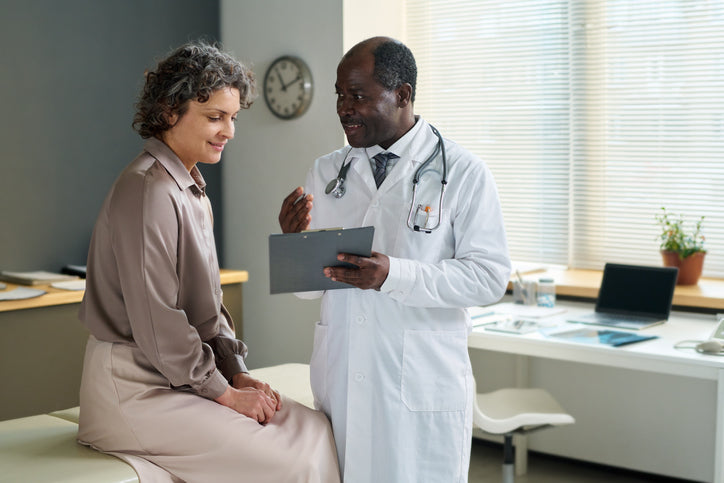
When To Seek Medical Help
It’s never too early to talk to your team of healthcare providers about your concerns. Physicians will approach the situation with respect and understanding, so you don’t need to feel embarrassed about bringing up issues related to bowel control.
Your healthcare provider can recommend the best treatments for incontinence for your specific needs and medical history. A care plan may include medications or alternative therapies like sacral nerve stimulation, which helps to strengthen bowel muscles with a surgically implanted device that delivers electrical current. A doctor can also rule out any underlying health problems worsening your symptoms.
Schedule an appointment with your healthcare provider to begin exploring your treatment options. While you wait for treatments to improve your symptoms, rely on Because Incontinence for protection and personal care products to care for your skin.
